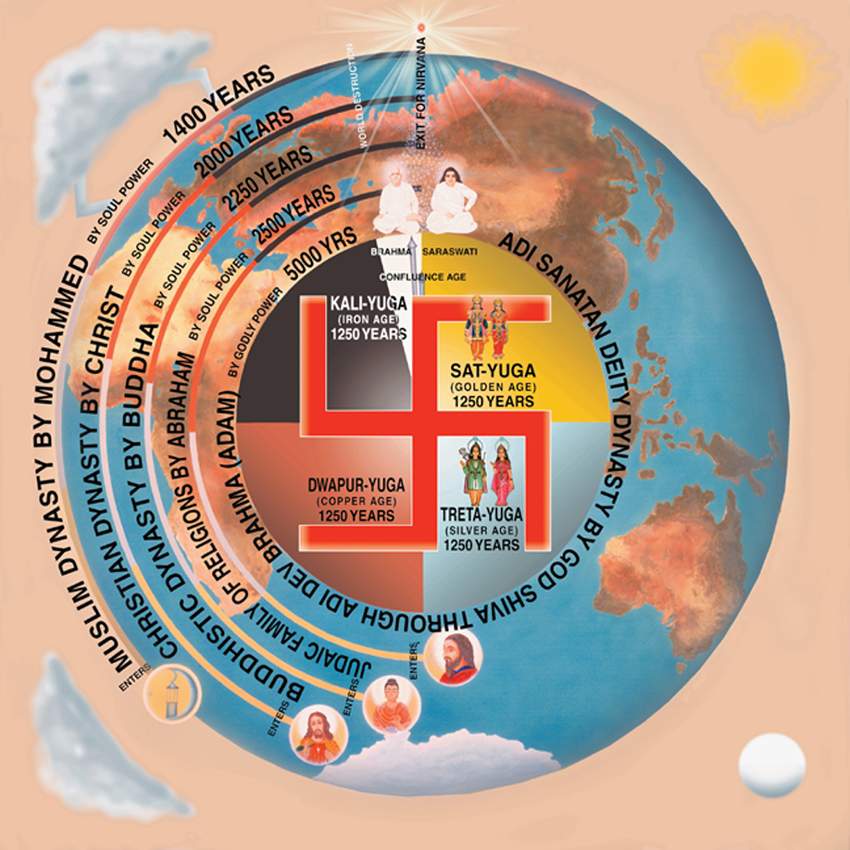Hinduism is one of the oldest and most complex religions in the world, with a rich mythology and a deep philosophy of life. One of the key concepts in Hinduism is the idea of time, and the cyclical nature of existence. According to Hindu mythology, time is divided into four Yugas, or epochs, each with its own unique characteristics and spiritual significance.
The first Yuga is known as the Satya Yuga, or the Age of Truth. This Yuga is believed to have lasted for 1,728,000 years, and is characterized by the presence of divinity and spiritual purity. It is said that in the Satya Yuga, human beings were righteous, moral and virtuous, and lived in harmony with nature.
The second Yuga is the Treta Yuga, which lasted for 1,296,000 years. This Yuga is characterized by the advent of materialism, and the emergence of conflicts and wars. It is said that in the Treta Yuga, human beings were less pure and spiritual than in the Satya Yuga, but still retained some of their divine qualities.
The third Yuga is the Dvapara Yuga, which lasted for 864,000 years. This Yuga is characterized by the increasing dominance of materialism and selfishness, and the decline of spiritual values. It is said that in the Dvapara Yuga, human beings were more focused on their own interests and desires, and were less concerned with spiritual pursuits.
The fourth and final Yuga is the Kali Yuga, which began about 5,000 years ago, and is believed to last for 432,000 years. This Yuga is characterized by the complete domination of materialism and the absence of spirituality. It is said that in the Kali Yuga, human beings are driven by greed, selfishness, and violence, and are far removed from the divine qualities of the earlier Yugas.
Despite the pessimistic view of the Kali Yuga, Hinduism also offers hope for spiritual evolution and growth. It is believed that just as the Yugas follow a cyclical pattern, individual souls also go through cycles of birth, death, and rebirth. Through spiritual practice and karma, it is possible to progress through these cycles and achieve liberation from the cycle of rebirth.
In conclusion, the concept of the four Yugas in Hinduism offers a profound insight into the cyclical nature of time and the spiritual evolution of humanity. By understanding the characteristics of each Yuga, we can gain a deeper understanding of the challenges and opportunities of our current age, and work towards spiritual growth and evolution.

